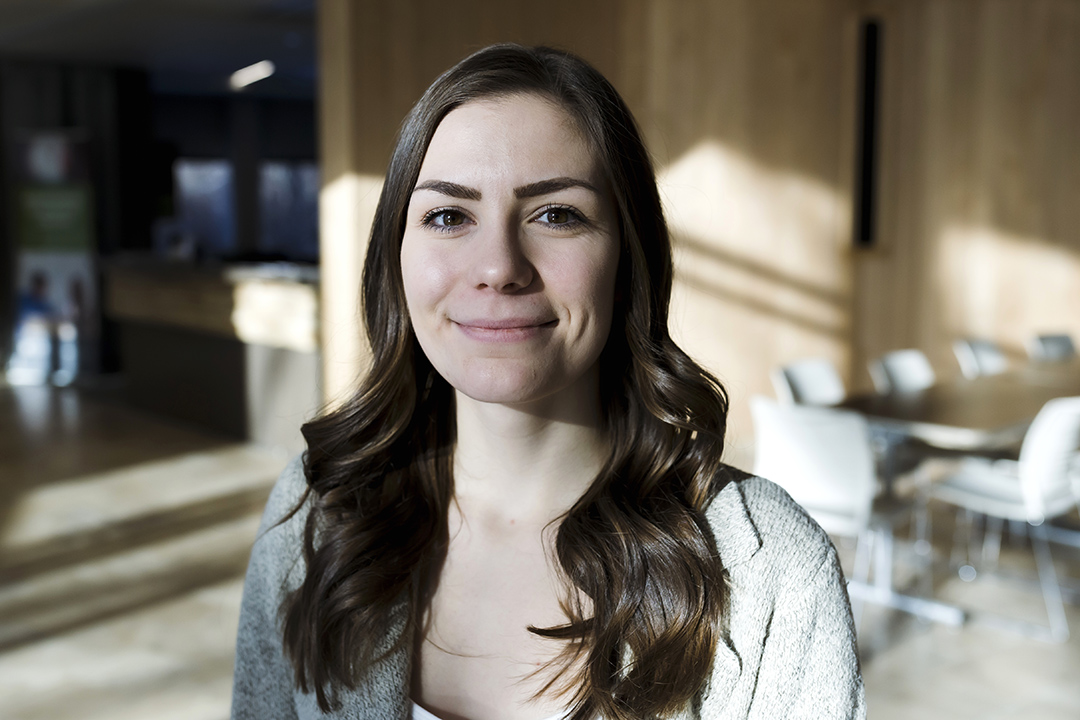
USask veterinary student exemplifies balance and perseverance
A passion for animals and a thirst for knowledge are at the heart of Coral Williams’ mission to succeed.
By Ashley Sharp and John ShellingWilliams is a first-year Doctor of Veterinary Medicine student in the Western College of Veterinary Medicine at the University of Saskatchewan (USask) who hopes to use her skills after graduation to assist rural communities in Manitoba. She stays active in school through tutoring fellow students and working part-time with Manitoba Agriculture.
Williams, from the Interlake band in Manitoba, received an award for academic excellence at this year’s Indigenous Student Achievement Awards on February 6. Indigenous students from across campus were honoured at a ceremony to recognize their academic excellence, leadership, research endeavours or community engagement.
The award ceremony was part of USask’s annual Indigenous Achievement Week, which celebrates the successes and contributions of Métis, First Nations and Inuit students, staff and faculty. The festivities included a public art project, speakers and celebrations in various locations across campus.
We asked Williams a few questions about her time at USask and what motivates her.
Why did you choose the Western College of Veterinary Medicine?
I chose the Western College of Veterinary Medicine due to it being close to my home residence in Manitoba and their awareness and motivation to change regulations within the profession.
Throughout your studies you have been a tutor and maintained multiple jobs. What advice do you have for students who struggle to balance school and other activities?
Advice I would provide is to not push yourself too hard and to take your time—everyone has their own pace—and to not quit when things get hard.
When did you first discover your love for animals?
I wouldn’t say a love for animals but more of a passion, as with ever-growing knowledge. I see the One Health connection that is linking animal and human health and I wanted to become part of the change.
What advice would you give to a student wanting to be a veterinarian?
I would say to work hard even when you want to quit because this is a profession where you don’t do it for yourself, you do it for those being affected. That doesn’t mean you can’t have fun. It means you have to know the time for fun.
Has there been someone in your life who has inspired you to get to where you are today?
Dr. Glen Duizer (DVM). He has believed in my abilities even when I didn’t know I had it in me. He also gave me a chance to prove myself and allowed my knowledge base to grow on the entirety of the veterinary profession.
This year’s Indigenous Achievement Week theme is Indigenous knowledge systems. How can Indigenous knowledge systems improve the world we live in?
I believe that Indigenous knowledge systems can help grow rural communities by embracing new modern knowledge with the old knowledge base, to compare ways of failure so that improvements can be correctly imposed.
Article re-posted on .
View original article.
